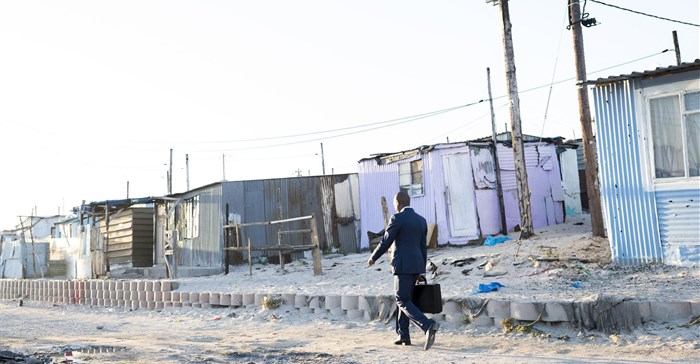#AfricaMonth: How to do business in Africa
Addressing the well-being needs of Africans through a true collaborative effort between business, government, communities and the people who inhabit this continent will unlock future value.

Image source: Getty/Gallo
As such, Alexander Forbes has released BenefitsALL Barometer Africa, which tackles 11 themes, relevant for multinational companies operating in Africa, says Anne Cabot-Alletzhauser, head of Alexander Forbes Research Institute.
- The demographic challenges of Africa
She points out that we can’t presume that Africa’s youth bulge in population growth will translate into a “youth dividend” for economic growth. Without proper support around education, skills training and health, that “youth dividend” could turn out to be a “youth demerit”. At this time, African countries rank lowest in terms of focus on human capital development. Employers can play a critical role here in helping to fill the gap where governments are hampered by constraints on the fiscus. More importantly, it’s in their financial interests as employers.
- Africa and the Fourth Industrial Revolution
African economies are likely to experience quite variable outcomes in their ability to adjust to the Fourth Industrial Revolution. Understanding these differences will be a function of not just assessing the skills capabilities of a country, but also the degree to which their economy is exposed to these global dynamics.- Rapid growth prospects
Africa is cited as offering investors exposure to some of the best economic growth opportunities globally. But that masks a more problematic reality. The record shows that few African nations have been able to convert that growth in GDP to inclusive, sustainable outcomes for their broader populations.In many respects, this failure to translate a country’s economic growth into financial wellness and financial stability for its citizens is a function of failed institutions and failed governance. “We need to pay close attention to how the trends on overall governance are playing out for different countries on the continent,” explains Cabot-Alletzhauser.
- Political will and economic growth
Getting governments to focus more on inclusive growth is not just a feel-good factor. Economic research highlights the point that the greater disconnect between a country’s population and its leadership and the greater the cultural fragmentation of country, the harder it is to motivate high levels of productivity. Cultural and political fragmentation can impact on economic growth by as much as 2% in some of the cases highlighted.- Partnering on foreign direct investment and multinational business initiatives
The real key to sustainable, inclusive economic growth will be how African governments manage their relationships with external investment partners, foreign development initiatives, and multinationals investing into their countries. Africa is at an important tipping point in its relations with the current three economic superpowers: the US, China and Africa’s largest trading partner, Europe. Africa can either continue to be party to an extractive economic model that leaves Africa in a deficit in terms of its own sustainable development needs, or African nations can become better managers of the conditions under which they are prepared to partner on foreign direct investment and multinational business initiatives.- Forging a different growth potential for Africa
The best chance Africa has of meeting its growth imperatives while at the same time meeting the challenge of global super-economies is to become a coherent economy in its own right. Achieving this will require a compelling plan without totally eliminating some level of national sovereignty. This is where political will to recognise that Africa as a continent provides a stronger value proposition than Africa as a set of independent entities. How African nations respond to the opportunities being offered through the Continental Free Trade Agreement will tell the tale for its future.- Migration and skills
Intra-Africa migration is already a socioeconomic reality on the continent. Labour moves to where it is needed and where it’s paid for. If managed well, it can become a powerful engine for economic growth and structural transformation. The more we understand about migration and remittances, the more apparent it is that migration within the African continent can be beneficial to both the receiving country and the country providing the labour force.- Technology
As the World Economic Forum succinctly put it: “Africa’s embrace of technology turns two common assumptions inside out – that tech breakthroughs happen in rich countries and that Africa needs basic services before it can use high-tech solutions. What Africa’s start-ups are doing is using technology to build those basic services – and a whole lot more.” The pace at which technology is changing the face of economic development in Africa could suggest that Africa follows a different growth path to previous emerging economies. This has significant implications for investment opportunities.- Urbanisation
Some economists look at the rapid growth of urbanisation in Africa and see economic opportunity. This rapid growth has been accompanied by very little forethought given to urban planning, spatial integration, infrastructure support and adequate servicing. Without careful and urgent attention, rapid urbanisation could become a ticking time bomb when it comes to sustainable economic growth, quality of life, quality of employment and quality of long-term care.- Healthcare solutions
“For multinationals expanding into Africa, adequate healthcare support for employees will be top on the list of challenges. But here is where multinationals have the potential to add real value to the communities and countries they invest in. It’s all about leveraging their own quality solutions into a broader community,” says Cabot-Alletzhauser.- Impact investing
Impact investing is potentially the best option for Africa but also a critical step forward for best-advice investing everywhere in the world.If African countries are going to meet their long-term ambitions and sustainable development goals (SDG) imperatives, all stakeholders – governments, employers, multinationals, foreign investors and individuals – will have to rethink exactly how funds will need to be redeployed to get the greatest multiplier impact on their investments. This applies to pension fund savings, foreign direct investment, social security programmes and corporate spending in equal measure, and will have to be a collaborative consideration.



































